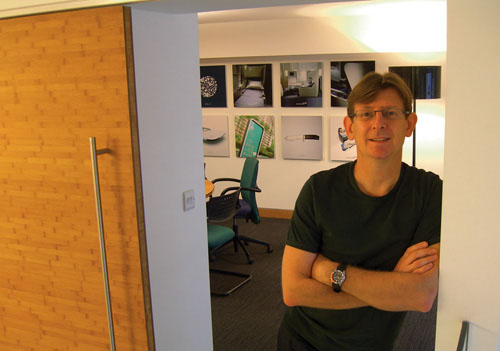Big country, big commitment

China represents a huge business opportunity for any consultancy, but it’s not an easy market to crack. Martin Darbyshire offers some hard-won tips on how to succeed
In January I stood in the Great Hall of the People in Beijing and listened as Prime Minister Gordon Brown and Chinese Premier Wen Jiabao talked of the best-ever relations between our two countries.
The PM held out the prospect of doubling UK exports to the world’s fastest-growing economy by 2010 as overall trade between the two countries sees a 50 per cent rise.
Premier Wen expressed his satisfaction at the momentum behind rapidly improving Sino-British relations. This new ‘comprehensive strategic partnership’ clearly offers huge opportunities for UK design.
Tangerine has been working with two Chinese manufacturing giants over the past couple of years, establishing very positive working partnerships.
Our relationship with Konka began in 2007, and we are currently working with one of China’s biggest R&D developers and manufacturers of telecommunication products.
Our first foray into China followed 16 years working with manufacturers in South Korea, Taiwan and Japan. Although these nations are very different, there are common traits and our experience was invaluable in understanding the Chinese market. We knew how important it was to go the extra mile, to listen and guide rather than push, and the importance, too, of an occasional evening of karaoke.
China’s growth is awsome. Nationally, GDP is increasing at 11 per cent a year, but many of the businesses quote 60 per cent. This extraordinary expansion is driven by the demand for high-value items from China’s new rich. It is also a measure of how successful China has become in targeting high-margin industries. I have met many a design consultancy boss whose workforce has risen from five to 200 employees in just a few years. I would caution anyone against thinking they can just walk in and match this kind of growth, not least because Chinese margins are tighter than we would expect. But this s still one of the most exciting parts of the world to be building a business in right now.
The Chinese place great value on reputation and personal relationships. All of the companies I have worked with are ambitious, intelligent, diligent and thorough. But they are cautious about the way in which you can best add value to their business. They will want to know exactly how you can help them reach potential clients and markets in Europe. Ex-pats are only too familiar with the rapid growth, the smog, the long working days and the patience required to build lasting relationships. They will tell you how many European business executives fail in China because they don’t find the right balance between bringing difference and fitting in. Never underestimate the importance of Chinese culture. If you haven’t worked in Asia and are serious about building a presence there, then your first step is almost certainly to contact officials at UK Trade & Investment. China is one of UKTI’s priority markets and it provides companies with a wealth of knowledge, advice and practical support.
The Union Jack and associated pomp and ceremony seem to go down very well, too – a good fit with Chinese culture. The China-Britain Business Council will help arrange meetings with potential clients. British consultancies are still something of a novelty so you have a good chance of getting to see someone. But converting introductions into business will take time and commitment. Be prepared to go back again and again, write proposals, and then write more proposals.
Also, be prepared to travel a lot. China is a huge continent and it will take three or four hours to fly between the major cities. But if you think that sounds a tough job, the Chinese work ethic is something to behold. Many senior staff spend half the year in Europe and the other half in their employer’s city, while their family lives elsewhere. It’s a hard slog.
Finally, many of you will want to know how you can ensure you get paid. Some South Korean design consultancies claim that they have not always been paid in full. Others always ask for money up front, and deposits are not unusual.
At Tangerine, we have found prompt payment depends on firm contract negotiation and a thorough appraisal of our work. I cannot be certain that my experiences will parallel yours, but one thing I do know. If you make it in China, you’ll have an experience that will change your life.
Martin Darbyshire is president and chief executive of Tangerine
AT A GLANCE GUIDE
• Sino-British trade is set to rise by 50%
• Domestic GDP is increasing at a rate of 11% per annum
• Bodies such as UK Trade & Investment and the China-Britain Business Council are vital points of contact
• Firm contract negotiation ensures prompt payment
• Don’t underestimate the value of a karaoke evening
-
Post a comment



